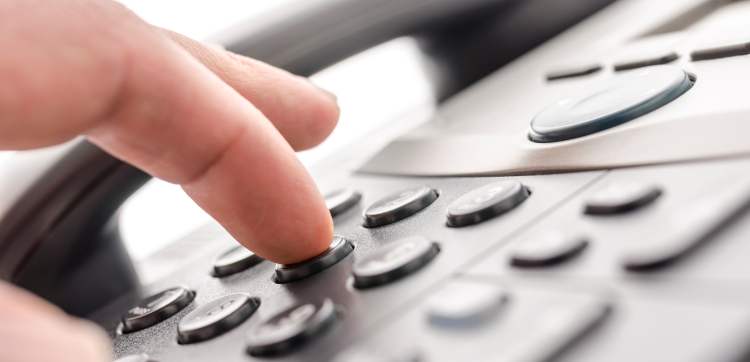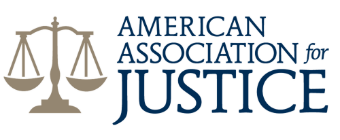Class actions can be a powerful tool in the fight against robocalls. Federal law allows private citizens to file lawsuits against telemarketers and other businesses who violate our privacy by placing unwanted sales calls or committing outright fraud.
- Private individuals can band together in a class action
- Up to $1,500 in compensation for each illegal call
- Call our attorneys now for a free consultation
Joining a class action allows numerous individuals to join their small claims together and create a huge legal action.
The Telephone Consumer Protection Act provides consumers with a powerful line of defense in the fight against robocalls.
"Excellent Attorneys." Laurence is the kind of man you can trust.
Harassed by telemarketers? Chances are, your rights are being violated. Telemarketers, credit card companies, debt collectors and other businesses have to follow strict phone marketing laws, but hundreds of companies don't play by the rules.
Robocalls Class Action Lawsuits
If you're being hit with telemarketing or debt collection calls, you may be entitled to financial compensation by filing a civil lawsuit under the Telephone Consumer Protection Act. And thousands of other consumers could be in the same position, so you don't have to go it alone.

The Telephone Consumer Protection Act allows you to file a class action, representing the interests of hundreds, or thousands, of people who have been harassed, too.
Battling Telemarketer Harassment Through TCPA Litigation
The Telephone Consumer Protection Act is a federal law, passed in 1991, that restricts the activity of telemarketers, debt collectors, credit card companies and any other businesses that want to solicit (or advertise) to consumers using phone calls.
Since the late-1980s, most companies that rely on telephone advertisements for their marketing have used autodialers, machines or software programs that can automatically dial telephone numbers at an extremely-rapid rate.
Debt Collectors & Scam Artists
The introduction of autodialers led to an explosion in telephone solicitation, an explosion that had a very predictable effect: telemarketers began to annoy American consumers like never before. Scam artists got into the act, too. Using an autodialer, a fraudster from inside the country or outside it can spam about one phone number every minute, hoping to swindle the unsuspecting people who pick up.


Debt collectors also found benefit in autodialing, using the speed at which their new software could dial to harass and hound people at all hours of the day.
It was a huge problem, one that Congress tried to fix in 1991, passing the Telephone Consumer Protection Act (TCPA) to cut down on the use of autodialers and pre-recorded messages, both of which make it a lot easier for marketers, businesses and con artists to torment their victims.
Your Rights Under The TCPA
It's now illegal for a company to use an autodialer to call your cell phone unless you provide them with express written (or recorded oral) consent to do so. That's true for marketing-related text messages, too. It's illegal to call your home phone and use a pre-recorded (or otherwise artificial) message. And it's illegal to place a solicitation call to anyone, regardless of the method, before 8 a.m. and after 9 p.m. local time.
Alongside these restrictions, lawmakers created the National Do-Not-Call Registry, a voluntary roster of phone numbers that, in most cases, telemarketers can't call without breaking the law.
TCPA also required business to keep internal company Do Not Call lists. Annoyed by a business that's trying to sell you something? Just ask to be put on their internal registry. If the same company calls you within the next five years, they're breaking the law.
The TCPA Needs Private Enforcement
The plan, of course, was to reduce the amount of telemarketing calls placed to US citizens. And, while the Telephone Consumer Protection Act has certainly made some headway, illegal telemarketing calls are still surprisingly common.
But you probably already know that. Around 80% of us are now on the National Do-Not-Call Registry, but telemarketers keep calling. So does "Rachel from Card Services" (that's a scam) and a host of shady cruise companies who tell you you've won a free trip, then try to steal your credit card number.
Those people are breaking the law. The Telephone Consumer Protection Act gives you a way to make them pay.
How Much Money Can I Win?
Under the TCPA, private citizens who are being harassed by illegal phone calls can file a civil lawsuit for financial compensation. You can sue the company or companies who are harassing you for monetary damages. The law outlines specific compensation amounts for various violations:
- $500 for each illegal telephone call
- $1,500 for illegal telephone calls that are "willful or knowing"
There's also a little wiggle room built into the law. In practice, you can sue either for $500 per illegal call or your actual monetary losses, if the illegal call put you out for more than $500. And you can also seek an injunction against the violation, securing a court order that forces them to comply with the law or suffer even greater penalties.
How TCPA Class Actions Can Help You Win Compensation
Is filing a civil lawsuit worth it? In some cases, the answer is an unqualified "yes!" If you've been hounded for months by dozens of illegal debt collector calls, it's probably in your best interests financially to pursue compensation in a private robocall lawsuit. Each call is $500, unless the person calling you knew that what they were doing was illegal and did it anyway. Then, it's $1,500, which can add up quickly.
When Banding Together Is The Best Option
In other situations, filing a personal lawsuit might not be financially viable. If you only got one illegal phone call, and the maximum available award is $1,500, you might actually lose money in the end, because you'll probably still be on the hook for attorneys' fees and court costs.
That's where class action comes in. Lawsuits filed under the Telephone Consumer Protection Act are often brought as class actions, because they allow hundreds or thousands of individuals, all of whom received an illegal telemarketing call, to pursue compensation together.
How A Class Action Lawsuit Works
In a robocalls class action, one initial plaintiff (or a small group of plaintiffs) files a civil lawsuit, but tries to convince a court that the allegations in the lawsuit actually apply to a much-wider group of people. Once the complaint has been certified as a class action, you and your legal team will go out and try to notify everyone who could be entitled to compensation that they should join the case.
Then, the legal process goes forward as normal. Both sides engage in settlement negotiations, hoping to find a mutually-agreeable resolution to put the case to rest. If no settlement can be reached, the case is set for trial and, hopefully, the jury delivers a verdict in favor of the plaintiffs.
Once the compensation amount has been worked out, it needs to be distributed. All of the potential class members submit their claims, providing documentation to prove that they deserve some of the money. After that, the settlement funds are doled out, usually by a third-party company designated by the court.
Recent TCPA Class Action Results
That's class action in a nutshell, but why is it a good idea? Class action is an effective way to litigate TCPA violations, because it spreads attorney costs and court fees around. By sharing the costs of litigation, a bunch of people who are all owed a small amount of money can still come out ahead in the end.
And TCPA class actions also happen to work. Over the last three decades, hundreds of large companies have been forced to pay huge settlements and jury verdicts in robocalls class action lawsuits.
- Bank of America announced in 2014 that the company would offer $32 million in compensation to settle six separate TCPA-related class actions, according to Bloomberg. Plaintiffs accused Bank of America, along with subsidiary FIA Card Services, of using an autodialer and pre-recorded messages to call their cell phones without prior consent. And, while Bank of America denied the allegations, the company still decided to settle. It remains one of the largest TCPA settlements in American history.
- Resort Marketing Group agreed to settle illegal telemarketing claims in June 2017, offering between $7 and $12 million to a class of plaintiffs who accused the company of making pre-recorded solicitation calls to cell phones and landlines on behalf of Royal Caribbean, Norwegian and Carnival Cruise Line. Nearly two million people have filed claims against the settlement fund so far.
- In 2016, debt collection agency Convergent Outsourcing announced a $5.5 million settlement to resolve allegations that the company had used an autodialer and artificial voice recordings to harass cell phone numbers without prior express consent. Around 503,000 cell phone owners are expected to be eligible for a share of the settlement.
- Solar panel company SolarCity agreed to create a $15 million settlement fund in 2017, resolving allegations that the company had made heavy use of illegal robocalls, slamming consumers cell and home phones with automated calls to sell solar panels.
- In 2011, home security system manufacturer Monitronics (now known as MONI) was hit with a class action lawsuit that said the company had used autodialers and pre-recorded voice messages to call residential and cell numbers, including numbers that were already on the National Do-Not-Call Registry. As in most of these cases, Monitronics denies any and all allegations of illegal activity, but, in August 2017, the company agreed to settle the class action for $28 million. A final hearing to approve the settlement agreement has been scheduled for April 5, 2018.
- In 2013, three separate people filed class action lawsuits against Collecto, a debt collection company. In their complaints, the plaintiffs accused Collecto of violating the Telephone Consumer Protection Act by using autodialer systems to harass them on their cell phones. Moreover, the cases said that Collecto routinely called the wrong numbers, essentially hounding people for money that someone else owed. Collecto has denied these allegations through five years of litigation in the US District Court for Massachusetts, a federal court in Boston. Even so, the company agreed to settle case for a total of $3.2 million in July of 2017.
That's just a small sample of the hundreds of settlement agreements that have been reached in TCPA class actions. And you could do the same thing. If you're being harassed by telemarketers, hounded by a debt collector or have heard from "Rachel from Card Services" one too many times, you may be able to do something about it.